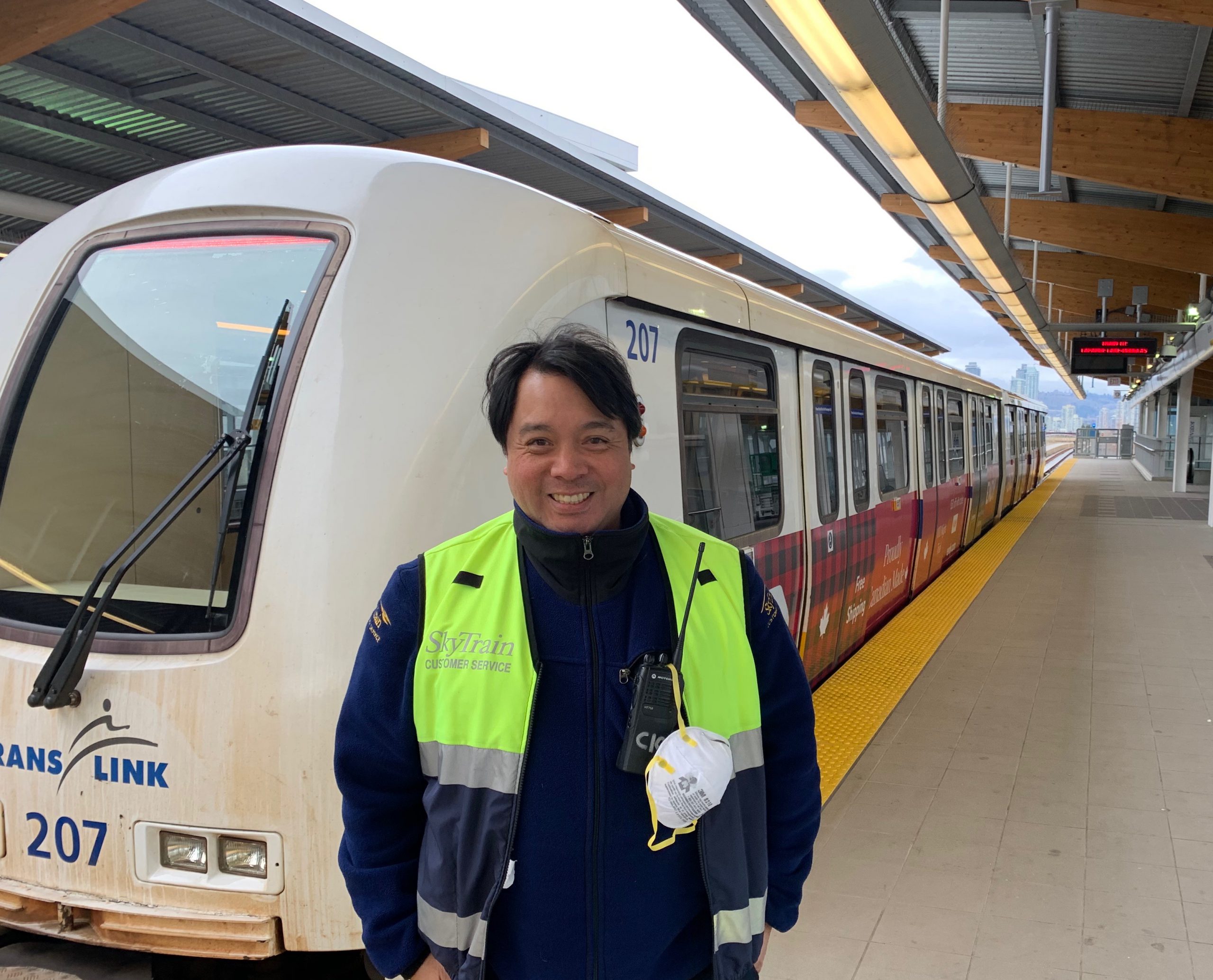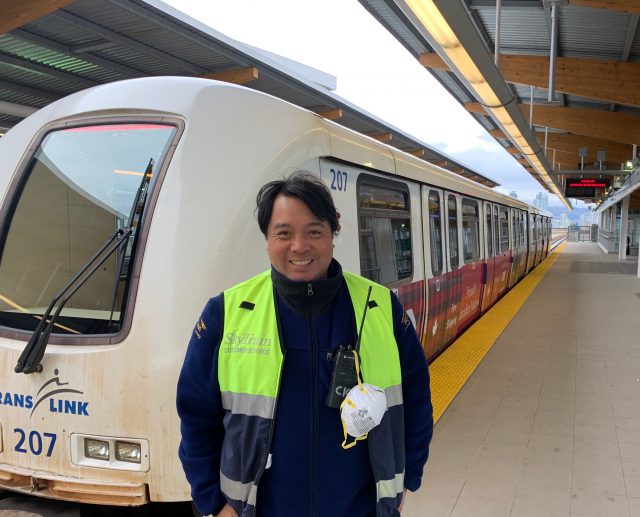Keeping the system open and accessible for those who need it
Keeping the system open and accessible for those who need it


Ryan Mendoza is a people person. Being as hands on as possible and interacting with customers is what he likes best as a SkyTrain Attendant.
“You want to leave passengers and customers with a positive experience when they’re done. Even with something as simple as loading their Compass Card, you want to show them how, instead of saying, ‘Hey, see that button on the left there press that,’” explains Ryan.
It’s been a been little more challenging with physical distancing these days where you have to maintain a two-metre space between yourself and everyone around you.
“It seems so simple but with what’s going on right now, you realize how you had taken for granted the way in which you go about doing things like that now.”
But that’s not stopping Ryan from working on delivering the best customer service he can for passengers.
Having worked at Commercial–Broadway Station since the Millennium Line opened in 2003, Ryan’s used to a busy environment. One that’s filled with customers and great relationships with passengers from across Metro Vancouver.
“You end up actually getting to know the customers by first name, where they’re going, where they’re coming from, what their day is like,” says Ryan, hoping they’re doing well and staying healthy. “I wonder what they are up to, now you’re not part of our days.”
Among the customers that Ryan enjoys helping the most and gotten to know the best over the years are customers who are visually impaired. Physical distancing means he’s had to update his approach to help them navigate the SkyTrain system.
“Instead of leading them with their hand, we can lead them with their walking sticks, through more verbal cues, or in another way that is comfortable for them in these unusual times,” Ryan explains.
There’s a host of other people that depend on transit to get around. That includes healthcare workers, daycare workers, restaurant workers, grocery clerks and other transit employees.
For Ryan, keeping the system running is about ensuring those without other transit options and those in essential services can still get around. “We need to maintain a system running for people who have to still go to work,” he says. “Health care workers, people that work at grocery stores, even people that work in the janitorial industry.”
“If we were shut down and – oh my gosh, how could they get from A to B, if they don’t drive, or they don’t have access to the car share program?” Ryan wonders aloud.
As for himself, Ryan is happy to be out there doing what he can.
“Personally, as long as I’m doing the best I can to stay safe – like I’m maintaining my distance, I’m watching what I’m touching, I’m okay with it, I understand that,” he says.
“We’re an essential service.”





